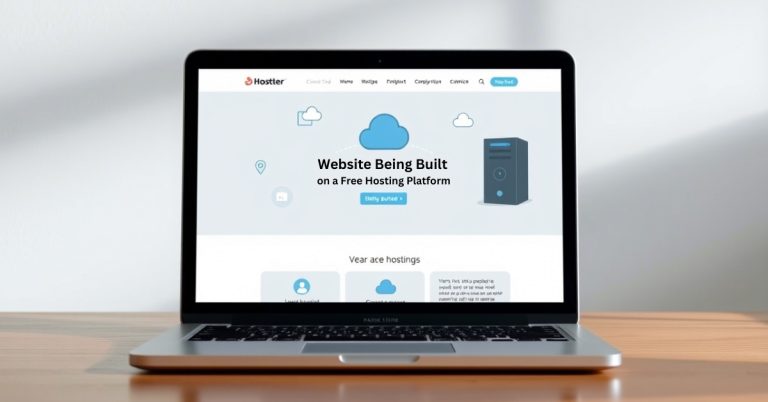How to Optimize Your Website for Speed with Better Hosting
How to Optimize Your Website for Speed with Better Hosting
Websites have to load quickly in the current technological era. A slow-accessing site does more than annoy visitors – it lowers revenue, negatively affects user experience, and increases bounce rates. How, though, can you guarantee your website’s speed is unbeatable? This might be solved with improved hosting. Here’s why selecting the right hosting provider matters in conjunction with website speed optimization and how to optimize your hosting.
What is Website Speed Optimization with Hosting?
Website speed optimization involves improving the loading speed of a website. However, many people forget the most important element—your website’s hosting. The hosting company you pick can greatly affect your website’s loading times, performance and user experience as a whole.
Put, better hosting allows the website to perform faster. If the backend of the website is optimized for speed, you will notice an increase in page load times, engagement, and an even higher SEO ranking. So, how can one optimize their speed through hosting? It begins with knowing the main components of hosting that affect speed.

How Does Hosting Affect Website Speed?
Notice: The correct hosting helps with your site performance by speeding up server load times, increasing uptime, and allowing your site to handle traffic surges effectively. Every type of hosting has its pros and cons. Let’s dissect it.
1. Shared Hosting
- How it works: In shared hosting, multiple websites share the same server resources, including CPU and bandwidth.
- Speed Impact: If one site on the server gets a traffic spike, all sites on that server could slow down.
- Best for: Small blogs or simple sites with low traffic.
2. VPS Hosting (Virtual Private Server)
- How it works: VPS gives you a dedicated portion of a server’s resources, providing more control over your site’s performance.
- Speed Impact: Faster than shared hosting but slower than dedicated hosting while still providing better uptime.
- Best for: Growing websites that need more resources without breaking the bank.
3. Cloud Hosting
- How it works: Your site is hosted across a network of virtual servers, which means you’re not limited to a single physical server.
- Speed Impact: Scalable, flexible, and often faster since resources are pulled from multiple sources.
- Best for: Sites that experience fluctuating traffic or need high uptime.
4. Dedicated Hosting
- How it works: Your website gets an entire physical server to itself, offering the highest level of performance.
- Speed Impact: Maximum speed and control—no other websites are competing for resources.
- Best for: Large-scale businesses or high-traffic sites that require top-tier performance.

The Benefits of Better Hosting for Website Speed
Optimizing your website for speed with the right hosting setup doesn’t just improve the user experience-it offers multiple other benefits.
1. Faster Load Times
User experience is largely dictated by speed. Every second matters. Research reveals that mobile users abandon a website after waiting 3 seconds for it to load 53% of the time. The site’s hosting impacts its loading speed significantly, and therefore, faster hosting services can trim critical seconds off load times.
2. Better SEO Performance
Page speed is a factor for Google and other search engines look at for ranking web pages. If the website is faster, the chances of ranking higher increase. With better hosting, consistently fast loading speeds can be achieved, which in return improves SEO rankings.
3. Higher Conversion Rates
When your website loads quickly, users are more likely to engage, stay longer, and complete desired actions like making a purchase or signing up for a newsletter. Faster websites are directly linked to higher conversion rates.
4. More Reliable Uptime
Hosting providers with better infrastructure can offer more reliable uptime. A hosting service that regularly experiences downtime will hurt your reputation and sales. Reliable hosting providers ensure that your site is accessible, even during traffic spikes.
Practical Strategies for Optimizing Your Website with Better Hosting
Now that you know the importance of hosting in speeding up your website, let’s get into the practical steps for optimization.
1. Choose the Right Hosting Provider
- Speed Matters: Look for a provider that offers high-performance servers and low latency.
- Scalability: Make sure your hosting plan can grow with your business. Cloud hosting offers great scalability, so you only pay for what you use.
2. Use a Content Delivery Network (CDN)
- A CDN distributes your content across multiple servers around the world, ensuring faster load times for users no matter where they are located.
3. Opt for SSD Hosting
- Traditional hard drives are slower than Solid State Drives (SSDs). Switching to SSD hosting can speed up your website significantly.
4. Compress Your Website Files
- Large images & files slow down your site. Compress your files before uploading them. Use gzip compression for text files like HTML, CSS, and JavaScript to reduce their size.
5. Leverage Caching
- Caching stores static versions of your site’s content, so it doesn’t need to be loaded from scratch every time. This drastically reduces load times, especially for repeat visitors.
Common Myths and Mistakes to Avoid
While you are working on optimizing the speed of your website, ensure that you do not fall into any of these common traps and blowers that may hinder your progress.
1. Shared Hosting is Always Fine
Although shared hosting is budget-friendly, websites requiring high-speed performance will not benefit. Because the resources are shared, slower load times are almost guaranteed, especially during busy times.
2. The Cheapest Hosting is Best
Opting for the cheapest hosting can save money, but it’s likely to compromise speed and reliability. You get what you pay for—make sure your hosting solution fits your website’s needs.
3. Ignoring Server Location
The closer your server is to your audience, the faster your site will load. Choose a hosting provider with servers in regions where your audience is located.
4. Skipping Maintenance
Don’t just set up your website and forget it. Regularly update your software and plugins, and even check your hosting performance. Neglecting maintenance can cause slowdowns and security risks.
Tools and Tips for Website Speed Testing
Before and after you upgrade your hosting, you’ll want to test how fast your site is performing. Here are some tools that can help you track your site’s speed
1. Google PageSpeed Insights
A tool that analyzes your website and gives suggestions for improvement.
2. GTmetrix
This tool analyzes your website’s performance, including hosting and server-related tasks, in detail.
3. Pingdom
Offers uptime monitoring and website speed testing.
4. WebPageTest
Run tests to see how your website performs from different locations globally.
Conclusion
Making sure that your page loads quickly by choosing the right hosting plan is not just a “nice-to-have” but rather a business need. A website that has slow load times will frustrate visitors and have lower conversion rates, which in turn negatively impacts the website’s SEO. The right hosting option – VPS Hosting, Cloud Hosting, or even Dedicated Servers – can ensure that a website has fast load times and improves user experience as well as search results.
As with all other business-critical functions, speed optimization with hosting should be viewed as an entirely new opportunity. Choosing the right hosting builds a solid foundation, allowing strategies to fully leverage a fast and reliable website.
Frequently Asked Questions (FAQ)
How does hosting affect my website’s speed?
Hosting determines your website’s server resources, including bandwidth, storage and CPU performance. Better hosting providers offer faster and more reliable servers, directly improving your website’s speed.
Is cloud hosting better for website speed than shared hosting?
Yes, cloud hosting generally offers faster speeds and scalability compared to shared hosting because it provides dedicated resources and a distributed network of servers.
How do I test my website’s speed?
To evaluate your website’s performance, you can utilize tools like Google PageSpeed Insights, GTmetrix, & Pingdom.
Will upgrading my hosting automatically make my website faster?
Upgrading your hosting will likely improve website speed, but you should also implement other optimization strategies like caching, image compression and using a CDN for best results.
What’s the best hosting for high-traffic websites?
For high-traffic websites, using dedicated or cloud hosting is generally the best option, as they provide the resources and reliability needed to handle large traffic volumes effectively.








